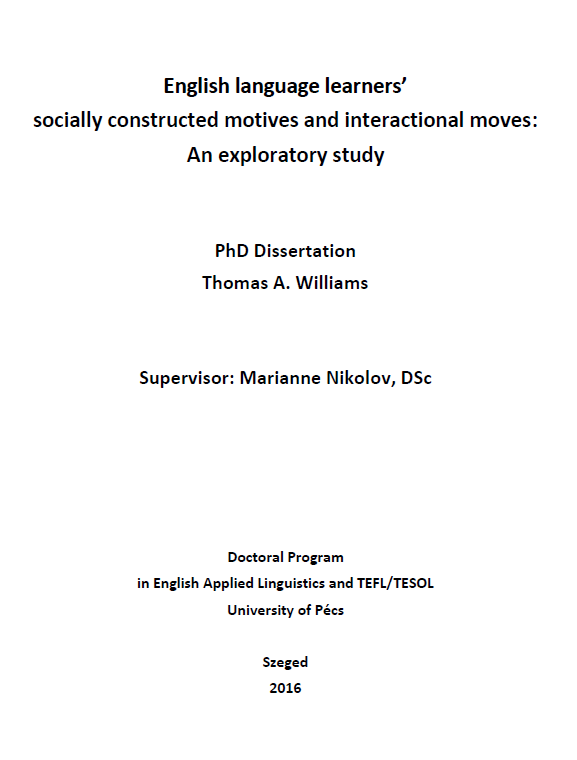English Language Learners’ Socially Constructed Motives and Interactional Moves: an Exploratory Study
Abstract
This qualitative study explores the potential for task-based language teaching (TBLT) in a
particular English language teaching (ELT) context by investigating the beliefs of a group of
learners about ELT and foreign language (FL) teaching generally. It also examines the nature
of these same learners’ task-based interaction and seeks to understand their socioculturally
determined motives in that regard.
The participants in this study are students in a Bachelor’s programme at the Institute
of English and American Studies, University of Szeged, Hungary. Fifty-seven students
contributed their task-based speaking data. Of these, 44 responded to an open-ended
questionnaire, and 18 took part in a one-on-one structured interview to provide their FL
learning views and experience.
Aside from the questionnaire and interview, both of which were developed by the
author, the data collection instruments for this study consisted of two standard decisionmaking
speaking tasks. Collected in autumn 2009, the data was processed and analysed in
stages for four parts of this study. I used content analysis for the questionnaire and
interview data and a narrow transcription and conversation analysis for the speaking data.
The findings consist of the following: despite a great deal of learner exposure to
traditional FL classroom practices, a general openness to the TBLT paradigm; a range of
socioculturally determined learner contributions to speaking task implementation; a strong
learner tendency toward collaborative moves in spoken interaction over negotiation for
meaning; and a range of both universal and culture-specific explanations for this tendency.
Based on these findings, the dissertation suggests various implications as regards ELT
(and other FL) learning and teaching for researchers, practitioners and teacher educators.

